How to Forgive People
Forgiveness, besides helping to let go of resentment and other negative feelings, can lead to better mental health, healthier relationships with those around you, and promote a calmer life with less stress and hostility.
5-Minute Crafts has prepared a guide with some key points to practice, and they’re worth trying to learn to let go and forgive once and for all.
1. Take your time and let your emotions flow.
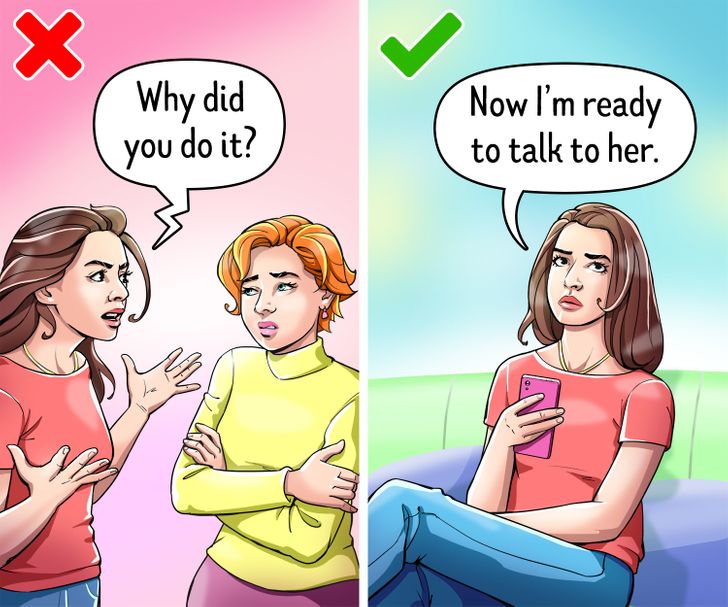
First of all, it’s recommended to take some time so that you can cool down and think about what happened on your own. Step away from a situation that’s causing you trouble or from the person who has hurt you. With your emotions running high, it’s very difficult for you to gain perspective, reason, and finally face the problem in a constructive way.
On the other hand, that doesn’t mean that you shouldn’t get in touch with your feelings. On the contrary, try to let them flow so that you can later regain strength and invest time in yourself until you feel ready to make any decision.
2. Know your feelings and accept what has happened.
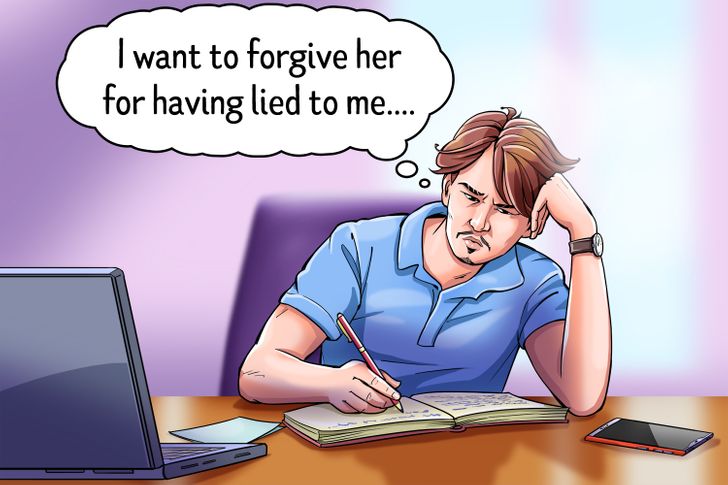
Acknowledging what you have experienced and how you have felt about it can help you deal with the problem in a better way. In any case, simply avoiding the issue will definitely not be better. Always keep in mind that no matter how much we would like to, it’s impossible to erase the past. However, accepting it allows you to understand you’ve been hurt, know what actions hurt you, and eventually learn from this bad experience.
In order to identify the key facts and how these make you feel more easily, you can try to write a list of the things you want to forgive, describing what exactly happened and specifying what or how these things hurt you.
Performing this exercise can also be useful to sort out the ideas in your head and then present them with greater clarity.
3. Express what you feel.
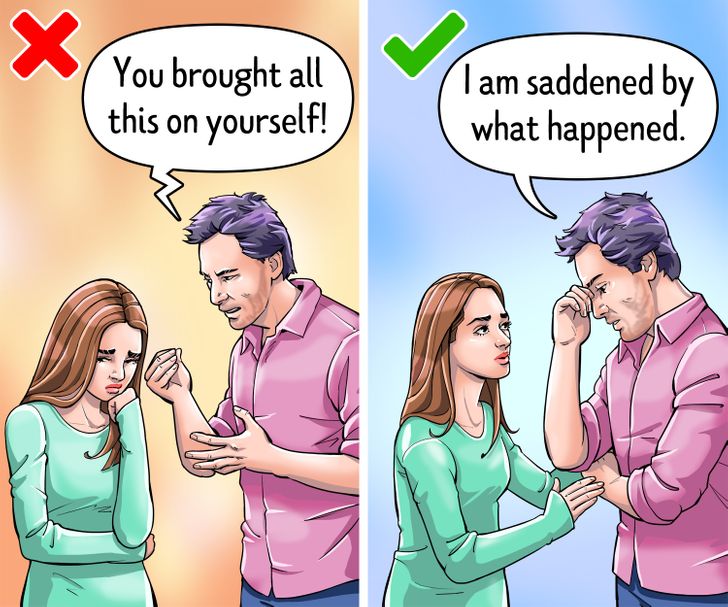
After identifying your emotions and what caused them, the next step is just as important — it’s time to express these emotions and finally let go of that burden you had to carry with you for a while. Hiding or repressing everything that ails you will only prolong the suffering and will not solve the problem.
In this step, you can talk to the person who has hurt you, explaining how his or her actions have made you feel. However, no matter what you do, you should always avoid arguing and/or blaming him or her for their mistakes. You can also write them a letter — even if you don’t give it to them — or talk to someone you trust about this issue. Expressing these thoughts and feelings will help you to free yourself from them and calm your mind. It might even allow you to see the situation with different eyes.
4. Consider the positive effects of forgiveness.
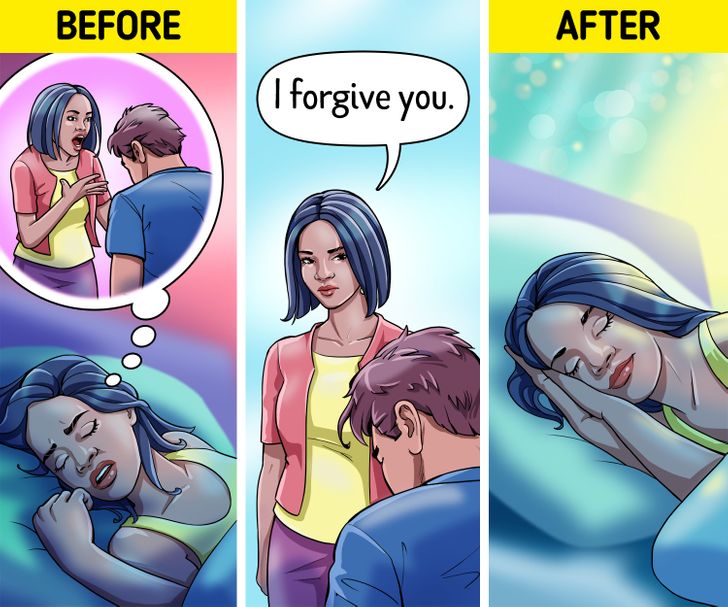
Maybe the most important thing to keep in mind when thinking about forgiveness is the following: When you decide to forgive someone, you are not only making a decision that benefits that person, but also yourself.
First of all, the act of forgiveness can help you let go of your stagnant emotions and move forward with a lighter mind that will always be welcome, especially if you felt very hurt. At the same time, forgiving allows you to improve your relationships with others by increasing the feeling of connection with those around you.
Not only that, but forgiveness can also have positive effects on your physical health, such as reducing anxiety and blood pressure, and improving sleep.
5. Let go of revenge.
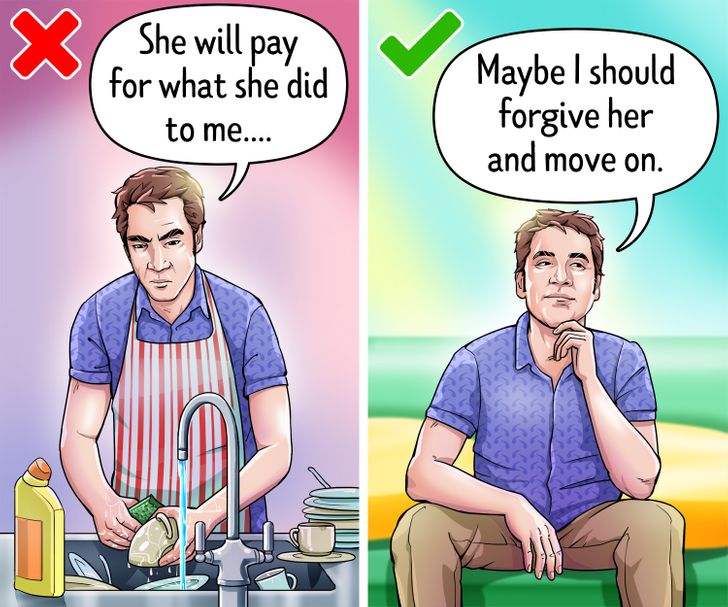
Holding onto the desire to make the other person pay for what he or she has done will only fuel more resentment and maybe even bitterness from your end. Both of these feelings can lead to self-destructive behavior that will only end in personal disappointment and negativity, so you want to avoid that at all costs. Once again, forgiving and letting go is the best option.
Remember that being flexible in feeling, thinking, and acting can help you to get a whole different perspective on the difficulties that come your way and face them with a more open mind. This will, in turn, make it easier for you to make the right choices.
6. Put yourself in the other person’s shoes.
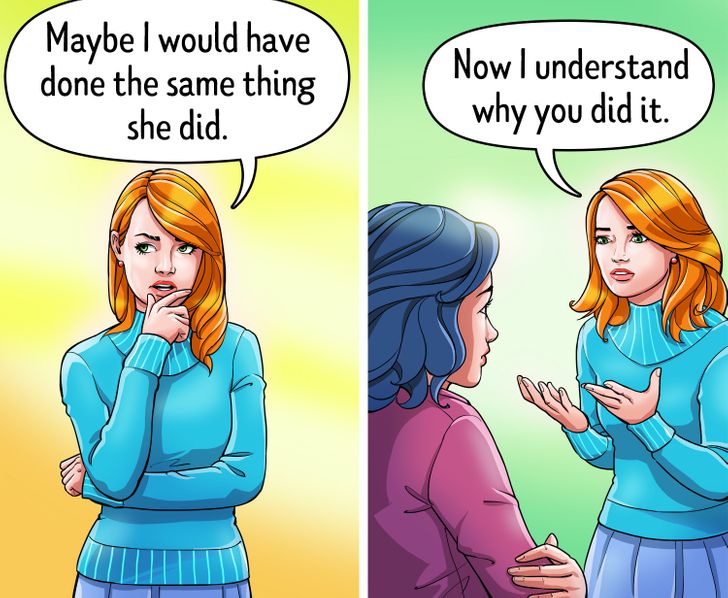
Give yourself time to think about why that person has acted in such a way and the context in which he/she was at the time of committing what you deem was a mistake because it has made you suffer so much. This will help you understand their behavior and ultimately forgive them. In some cases, you might even realize that they weren’t wrong and you misunderstood what happened.
In any case, doing this will also allow you to cultivate empathy, which can make this process much easier.
7. Remember the times you have been forgiven in the past.
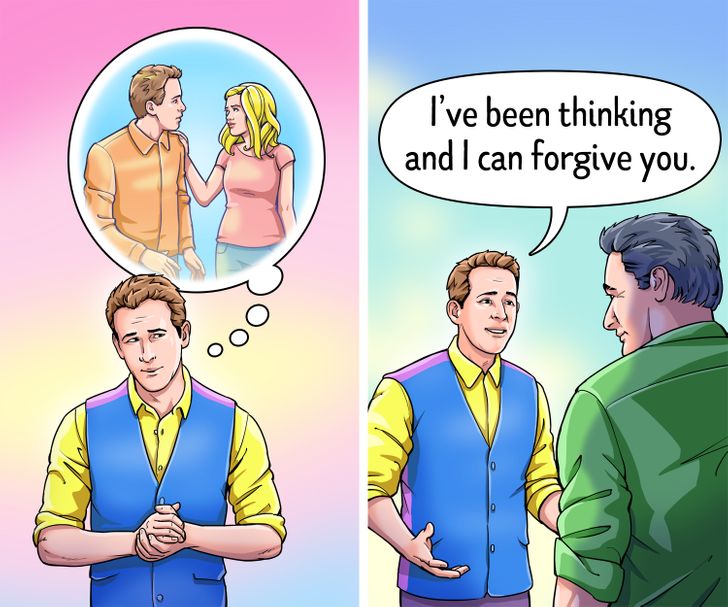
Think about the different situations in which you have harmed others and they have forgiven you. Recall how you felt about it and the feelings of gratitude and relief that came from receiving compassion from the other person.
This may lead you to consider giving that same feeling to someone who has wronged you. In the end, that person might not even have wanted to do you any harm.
8. Keep in mind the good things about the other person.

Focusing on the positive aspects of your friendship or relationship with the person who has hurt you can help you look at things differently and not see the situation in a completely negative light. After all, you might have cherished some beautiful moments before the incident took place. Remember that all human beings around you make mistakes, but they also have some positive characteristics that have led you to keep them in your close circle for a while.
9. Don’t set expectations.
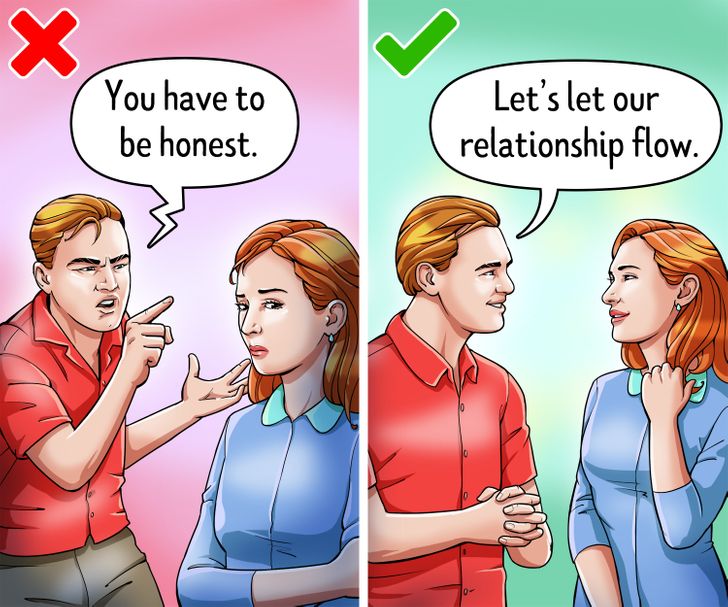
While you can always expect good things to happen, such as love and friendship, and do your part to make it happen, you must be realistic and accept that you do not have control over other people and their actions.
If things don’t turn out the way you want them to, it will only make you suffer and feel frustrated, so be prepared to face difficulties, forgive if necessary, learn, and move forward.
10. Forgive with understanding, not as an obligation.
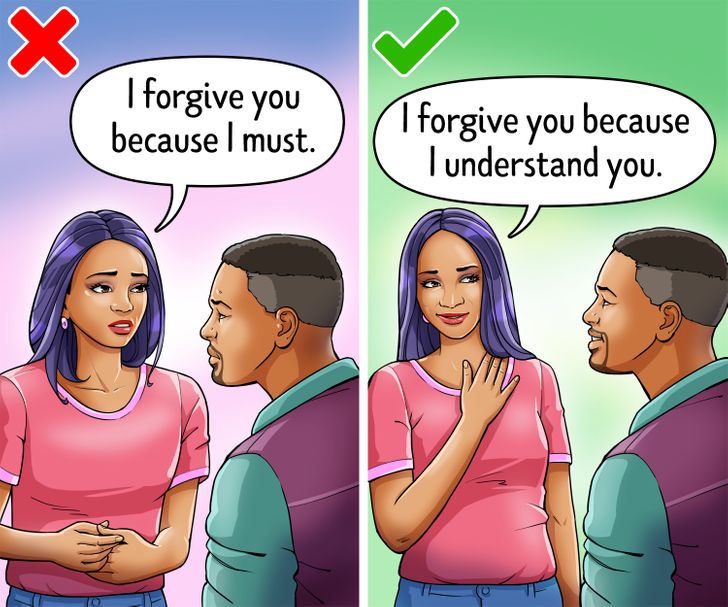
When forgiveness comes from understanding and empathy toward the other person, it is more likely that you will be able to resume your relationship with him/her in a positive way.
It is recommended that before you forgive, you evaluate whether you are doing it because you have no other choice, or because something is pushing you to make that decision. If so, you are likely to end up in a bad relationship with the person who hurt you, which is completely removed from the main objective, which is to heal and be at peace.